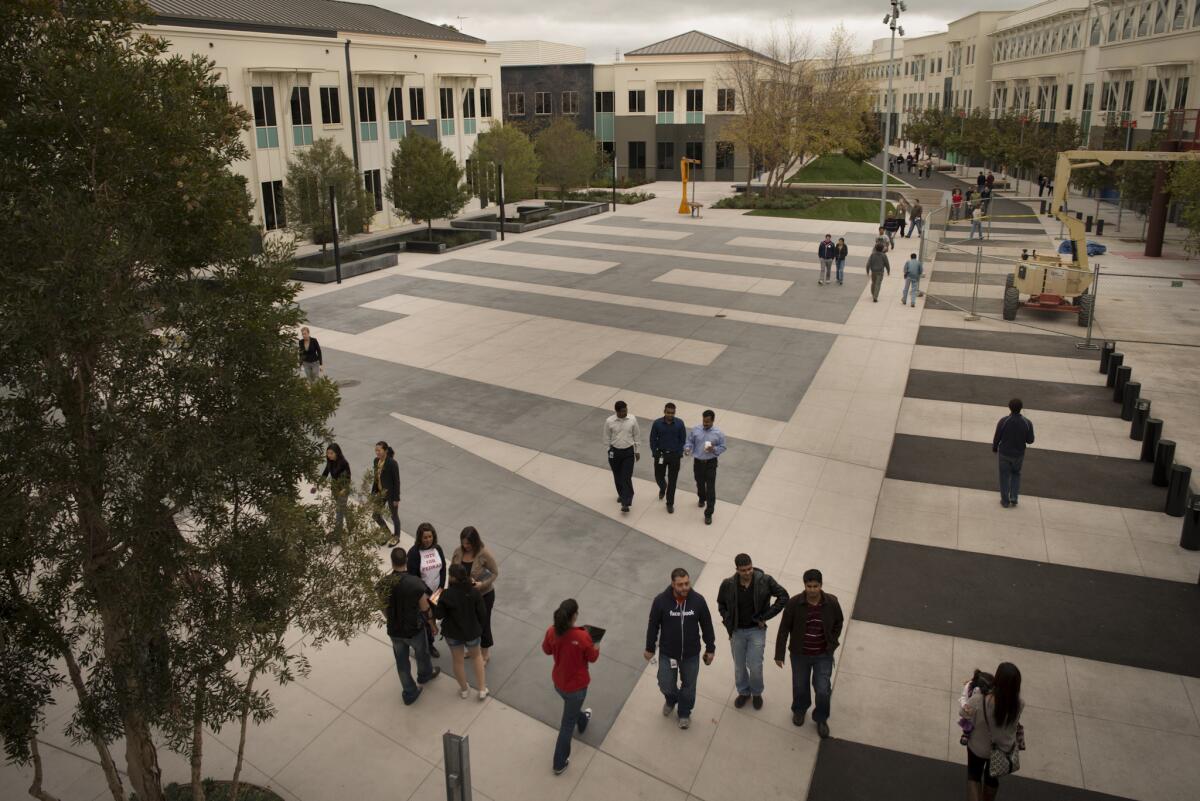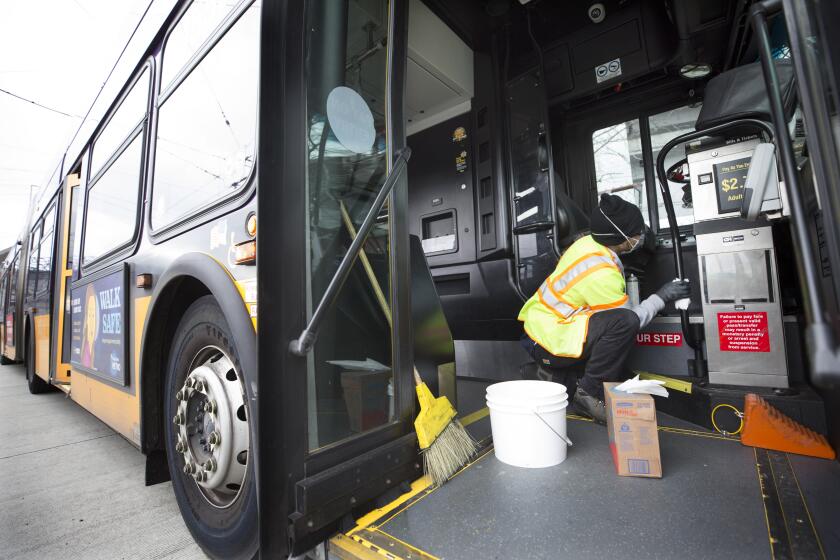Amazon and Google are among companies telling workers to stay home amid coronavirus outbreak

- Share via
As the number of coronavirus cases in California continues to climb and the federal government embraces drastic new measures to contain the outbreak, many major corporations are taking it upon themselves to help prevent spread of the disease.
Conferences and other large events have been canceled and companies have halted nonessential travel and urged their employees to work from home. Communications technology, such as videoconferencing platform Zoom and messaging platform Slack, has made it easier for office workers to do their job remotely.
So far, these are some of the notable U.S.-based companies that have encouraged or mandated employees to telecommute as a result of the outbreak:
- Twitter (San Francisco):“We are strongly encouraging all employees globally to work from home if they’re able,” the social media company wrote in a blog post on March 2. It subsequently made telecommuting mandatory and said it would pay for the cost of setting up home offices and finding new child care and continue to pay its hourly workers.
- Amazon (Seattle): If employees can work from home, they should do so until the end of March, Amazon said.
- Microsoft (Redmond, Wash.): Employees in Puget Sound-area offices, near Seattle, and in the Bay Area were encouraged to work from home until March 25.
- Facebook (Menlo Park, Calif.): When a contractor in its Seattle office was infected with the coronavirus, Facebook closed the office for the week. The company is “strongly recommending” that all Bay Area employees and contingent staff work from home.
- Google (Mountain View, Calif.): The company told its North America employees -- including contract workers -- not to go into their offices unless they had to, and later expanded that recommendation to Europe, the Middle East and Africa. Google had previously asked its Seattle workers to work from home. The company said it would continue to pay hourly staff such as food service, cleaning and security workers.
- Apple (Cupertino, Calif.): The company has encouraged employees in California and Seattle to work remotely and Tim Cook, the company’s chief executive, told employees at several global offices to work remotely “if your job allows.”
- Airbnb (San Francisco): The company asked all employees and contingent workers in the Bay Area to work from home for two weeks. A spokesperson told Business Insider the company plans to continue paying support staff such as food service workers and janitors their normal wages.
- Lyft (San Francisco): The ride-hailing company sent its San Francisco employees home as a precaution after learning one staff member had been in contact with someone exposed to coronavirus.
- Chevron (San Ramon, Calif.): After an employee was tested for coronavirus, Chevron told its London office staff to work remotely until it received test results.
- Square (San Francisco): The payment processor company encouraged employees to work remotely.
- SquareFoot (New York): The commercial real estate company asked its employees to work from home.
- The Washington Post (Washington): The news outlet encouraged its employees to telecommute. The company also said in an email to staff that employees who self-quarantined, even as a precaution, would continue to be paid normally and would not be expected to use vacation or sick time.
- The New York Times (New York): The news outlet told its employees that if they want to work remotely they can do so.
- The Los Angeles Times (Los Angeles): The news outlet encouraged its employees to telecommute.
How the coronavirus outbreak might affect you or your family depends heavily on where you work and live and the generosity of your employer’s benefits.
California colleges that have decided to cancel most in-person classes, campus gatherings and travel because of the outbreak are also major employers in the state. Here are some campuses that have taken such measures:
- USC said it would continue to limit classes to only online, remote instruction even after spring break concludes on March 29.
- UC campuses including Los Angeles, Berkeley, Irvine, Riverside, Santa Barbara, Davis, San Diego and Santa Cruz have limited in-person classes, while faculty at UC Merced were “strongly” encouraged to move to remote learning.
- Stanford University said it would switch to online classes for the final two weeks of its winter quarter.
More to Read
Inside the business of entertainment
The Wide Shot brings you news, analysis and insights on everything from streaming wars to production — and what it all means for the future.
You may occasionally receive promotional content from the Los Angeles Times.












